Pukeiti and Hollard Gardens are amazing places for environmental education for ākonga/students.
Rainforest education at Pukeiti
Pukeiti is a 360ha rainforest park at the base of Taranaki Maunga (mountain), internationally renowned for its outstanding rhododendron collection. It's the perfect place to to experience firsthand the high diversity of native plants, birds and invertebrates. The rainforest provides an ideal setting to learn about ecological threats and how these threats can be managed to enhance native biodiversity values.
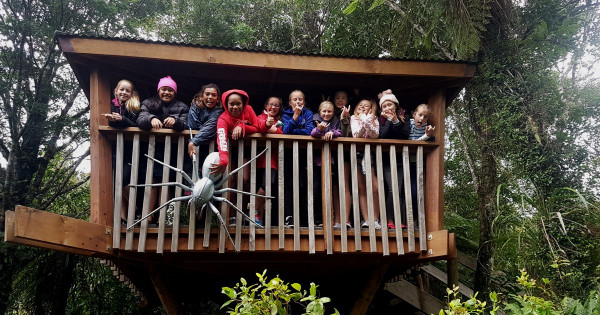
Field trips to Pukeiti typically run between 10am and 2pm and incorporate a rainforest tour and one other activity of the school’s choosing. Due to the interactive nature of the visit, we recommend limiting the size of the group to 30 students with appropriate adult help. If you would like to bring a larger group, please get in touch and we can discuss suitable rotation activities.
Students should bring their own lunch and water bottle. The Rata Room will be available for breaks, shelter and bag storage.
Ngahengahe/Rainforest tour
- Ākonga/Students will experience and learn about the diverse range of native animals and plants that live in the rainforest and the action being taken to protect them. The tour can incorporate the following components: Tree-top look out
- Waterwheel
- Tree house explore
- Fitness trail
We will spend approximately an hour and a half exploring the rainforest and then return to the Rainforest Centre for lunch.
After-lunch activities
After lunch, you can choose one of the following activities. If you are keen to do another activity in line with your ākonga/students learning, feel free to get in touch and discuss further.
Pot a plant
This activity makes use of the abundance of native seedlings at Pukeiti. Ākonga/Students will pot their own seedling which they can then take back to plant at school or at home.
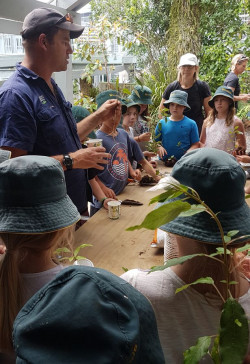
Students will pot their own seedling which they can then take back to plant at school or at home, spreading biodiversity values.
Ākonga/Students will learn:
- How to identify native seedlings
- How to transplant and pot up the plants
- How to care for the plants when taken back home or to school
- What wildlife the plants will attract when they are fully grown
Creepy crawlies
Pukeiti provides home to an amazing diversity of invertebrates that play a crucial role in the rainforest ecosystem. They decompose leaves, pollinate plants and provide food for native birds, reptiles and other invertebrates. This activity involves hunting for bugs.
Ākonga/Students will learn:
- Methods used to collect creepy crawlies
- How to identify invertebrates
- The different ecological roles that these species play at Pukeiti
Stream study
The streams that run through Pukeiti are pristine and shaded, providing great habitat for freshwater macroinvertebrates.
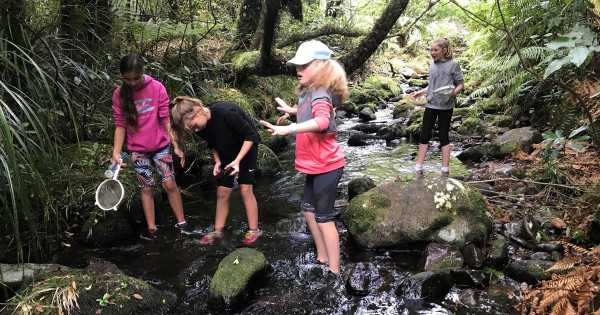
Ākonga/Students will learn:
- How to collect and identify stream macroinvertebrates
- What role these bugs play in the freshwater ecosystem
- How the species present indicate the health of the waterway
To avoid damage to the pristine waterbodies, student numbers are limited for these activities.
Sustainable garden education at Hollard Gardens
Hollard Gardens provides the ideal environment for ākonga/students, kaiako/teachers and whānau/parents to learn about sustainable practices in the garden.
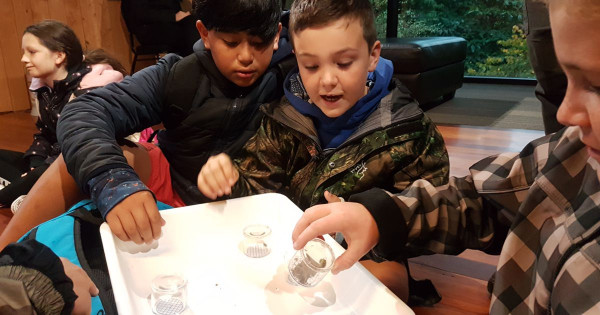
The aim of the visit is for ākonga/students, kaiako/teachers and whānau/parents to gain valuable skills that they can then take back to use at school/kura or home.
School visits typically run 10.30am to 1.30pm. Due to the practical and interactive nature of the visit, we recommend limiting the size of the group to 30 students with appropriate adult help. There is a limit to how many guided visits we can run in one term. However, if we’re all booked up we can always advise you on what to do for a self-guided tour.
Ākonga/Students should bring their own lunch and water bottle. A covered area is available for breaks, shelter and bag storage.
Activities covered during a visit include:
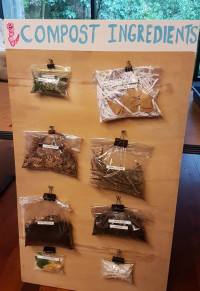
Onepōpopo/Composting
Composting at home and at school is a win-win. It provides an environmentally friendly way of disposing of food scraps and garden green-waste and produces quality home-grown compost if done correctly. Students will learn how to layer the correct mix of ‘greens’ (nitrogen) and ‘browns’ (carbon) by making their own compost heap with the raw ingredients provided. They also get to see a variety of different composting techniques used at Hollard Gardens.
Pāmu noke/Worm farming
Worm farms are a great way to recycle kitchen waste and food scraps into one of the best garden fertilizers available. Ākonga/Students will learn how to make their own worm farm and what type of food scraps to add. They can also check out the hungry tiger worms in the Hollard Garden bath tub worm farm.
Bug quiz
Invertebrates are key to the functioning of any healthy garden. Ākonga/students will learn why bugs are so important and how to identify them in a bug quiz using creepy crawlies collected from Hollard Gardens.
Garden nature tour
The combination of exotic and native plants at Hollard Gardens attracts wildlife all-year-round. On the nature tour, Ākonga/students will learn how to identify native bird species based on sight and call.
The tour finishes off at the playground where the students can burn off any remaining energy before they return to school with all of their newfound knowledge.
We can adapt the schedule according to your needs and interests. If you have any further requests relating to sustainable gardening practices don’t hesitate to get in touch.